Opening Address: What is Solidarity?
Time: 9:30-10:00 am PST / 12:30-1:00 pm EST
Abstract: Attacks on higher education shrink the space for everyone to think, question, and share ideas. SAR’s 2021 “Free to Think” Report documented 332 cases of attacks on higher education communities across 65 countries, including killings, violence, prosecution, and loss of position, etc. The opening address to kick-off the Scholars at Risk Canada Advocacy Day, titled “What is Solidarity?” aims to ground the day of learning and sharing around the theme of global solidarity in the realm of academic freedom. The opening address will first provide a brief overview on what academic freedom is, and how it differs from freedom of speech, and why safeguarding academic freedom is integral to the autonomy of higher education institutions. The word “solidarity” is often used liberally among participants in the public advocacy and social justice circles, but what does that actually look like? How can university students and young activists think critically about solidarity from a position of privilege in Canada, and what are we trying to do in acts of solidarity with those whose academic work are under threat? What does it look like to meaningfully contribute to SAR’s pillars of work, including protection, advocacy, and learning?
Speakers:
 Dr. Shuchi Karim is a feminist academic and researcher from Bangladesh. She completed her PhD at the Institute of Social Studies (ISS), The Hague, The Netherlands in 2012, specializing in Women, Gender and Development with focus on sexualities. Karim had her first MA degree in English Language and Literature from Jawaharlal Nehru University, India; and her second MA from University of Warwick, UK, in Gender and International Development. Shuchi Karim’s career is a combination of development work, academia and activism. In recent years she worked at multiple academic and development institutions in the area of gender and sexual and reproductive health and rights, including the Institute of Educational Development of BRAC University (Bangladesh), the ISS, and Radboud University, Nijmegen, Netherlands. She is currently working at Western University (Women’s Studies and Feminist Research Department) as an Assistant Professor. Dr. Karim’s research areas include gender and sexuality, sexual and reproductive health rights, transnational feminism, intersectionality, gender and development issues. Karim is a passionate advocate for scholar activism and academic freedom.
Dr. Shuchi Karim is a feminist academic and researcher from Bangladesh. She completed her PhD at the Institute of Social Studies (ISS), The Hague, The Netherlands in 2012, specializing in Women, Gender and Development with focus on sexualities. Karim had her first MA degree in English Language and Literature from Jawaharlal Nehru University, India; and her second MA from University of Warwick, UK, in Gender and International Development. Shuchi Karim’s career is a combination of development work, academia and activism. In recent years she worked at multiple academic and development institutions in the area of gender and sexual and reproductive health and rights, including the Institute of Educational Development of BRAC University (Bangladesh), the ISS, and Radboud University, Nijmegen, Netherlands. She is currently working at Western University (Women’s Studies and Feminist Research Department) as an Assistant Professor. Dr. Karim’s research areas include gender and sexuality, sexual and reproductive health rights, transnational feminism, intersectionality, gender and development issues. Karim is a passionate advocate for scholar activism and academic freedom.
First Concurrent Session
Roundtable 1.1 – Middle East and North Africa
Time: 10:00-11:00 am PST/ 1:00- 2:00pm EST
Abstract: Of the eleven high-profile academics whom Scholars at Risk has been actively conducting advocacy on behalf of, six are from the MENA region, including Zaki and Santawy from Egypt, Dr. Djalali and Bayani from Iran, and Al-Singace and Al-Halwachi from Bahrain. Beyond individual scholars, Turkish President Recep Tayyip Erdogan issued a decree to effectively shut down Istanbul Sehir University in 2020, and further reigned in control of Turkish universities’ leadership through presidential decrees. The goal of this roundtable discussion is not only for participants to gain a deeper insight into the state of human rights and academic freedom in MENA, but also to facilitate interactive and fluid conversations around effective advocacy strategies given the region’s unique circumstances in the aftermath of the Arab Spring. More specifically for student panelists, it is encouraged that they share what work they have done through their SAR engagementship, what forms of advocacy they undertook, as well as struggles they faced in their work.
Speakers:
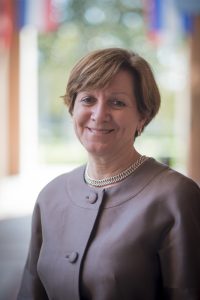 Laurie A. Brand is Professor Emerita of Political Science & International Relations and Middle East Studies at the University of Southern California. She served as director of the Center for International Studies from 1997-2000, as Director of the School of International Relations (2006-09), Director of the Middle East Studies Program and then Chair of the Department of Middle East Studies (2014-17). A past president of the Middle East Studies Association of North America (2004), and chair of its Committee on Academic Freedom since 2006, she specializes in Middle East international relations and inter-Arab politics. A Rockefeller Bellagio Center resident scholar in fall 2013, a Carnegie Scholar for 2008-10 and a four-time Fulbright scholar to the Middle East and North Africa, she is the author of Palestinians in the Arab World (Columbia University Press, 1988), Jordan’s Inter-Arab Relations (Columbia University Press, 1994); Women, the State and Political Liberalization (Columbia University Press, 1998); Citizens Abroad: States and Migration in the Middle East and North Africa (Cambridge University Press, 2006); and Official Stories: Politics and National Narratives in Egypt and Algeria (Stanford University Press, 2014). Her current research interests include: state-expatriate relations; the politics of academic freedom and education reform; and national narrative construction. She has carried out fieldwork in Morocco, Tunisia, Algeria, Egypt, Lebanon, Jordan, Syria and Kuwait.
Laurie A. Brand is Professor Emerita of Political Science & International Relations and Middle East Studies at the University of Southern California. She served as director of the Center for International Studies from 1997-2000, as Director of the School of International Relations (2006-09), Director of the Middle East Studies Program and then Chair of the Department of Middle East Studies (2014-17). A past president of the Middle East Studies Association of North America (2004), and chair of its Committee on Academic Freedom since 2006, she specializes in Middle East international relations and inter-Arab politics. A Rockefeller Bellagio Center resident scholar in fall 2013, a Carnegie Scholar for 2008-10 and a four-time Fulbright scholar to the Middle East and North Africa, she is the author of Palestinians in the Arab World (Columbia University Press, 1988), Jordan’s Inter-Arab Relations (Columbia University Press, 1994); Women, the State and Political Liberalization (Columbia University Press, 1998); Citizens Abroad: States and Migration in the Middle East and North Africa (Cambridge University Press, 2006); and Official Stories: Politics and National Narratives in Egypt and Algeria (Stanford University Press, 2014). Her current research interests include: state-expatriate relations; the politics of academic freedom and education reform; and national narrative construction. She has carried out fieldwork in Morocco, Tunisia, Algeria, Egypt, Lebanon, Jordan, Syria and Kuwait.
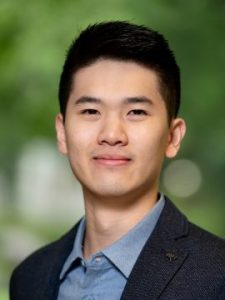 Timothy Chiu (he/him) is a Graduate Research Assistant in the Human Rights Collective, and an organizer for the first Canadian Scholars at Risk Student Advocacy Day event. He recently graduated with a B.A. in Political Science, and is now a student in the Master of Management program at Sauder School of Business. Timothy first became involved with ORICE through the Scholars at Risk seminar course in January 2021. He was born and raised in the country of Taiwan, before immigrating to Canada on unceded Squamish (Sḵwx̱wú7mesh) territory. Through his academic and volunteer experiences, Timothy has a strong passion for social justice, grassroots advocacy, and community engagement.
Timothy Chiu (he/him) is a Graduate Research Assistant in the Human Rights Collective, and an organizer for the first Canadian Scholars at Risk Student Advocacy Day event. He recently graduated with a B.A. in Political Science, and is now a student in the Master of Management program at Sauder School of Business. Timothy first became involved with ORICE through the Scholars at Risk seminar course in January 2021. He was born and raised in the country of Taiwan, before immigrating to Canada on unceded Squamish (Sḵwx̱wú7mesh) territory. Through his academic and volunteer experiences, Timothy has a strong passion for social justice, grassroots advocacy, and community engagement.
Roundtable 1.2 – Eastern Europe
Time: 10:00-11:00 am PST/ 1:00- 2:00pm EST
Abstract: The COVID-19 pandemic has introduced new threats to academic freedom, most notably with the transition to online teaching and remote work allowing new opportunities to surveil research, teaching, and discourse. While these circumstances are not unique to universities in Eastern Europe, governments in Romania, Hungary, Poland, Russia, and most recently Belarus have placed significant legislative pressures and restrictions on academic freedom on university campuses. This roundtable will focus on the recent widespread state crackdown, expulsion, and arrest of students and professors, who protested against the results of the 2020 presidential election. As the rapidly deteriorating situation in Belarus has received less global awareness, student panelists in this roundtable are invited to reflect on their unique experiences of conducting academic freedom research and advocacy in this region.
Speakers:
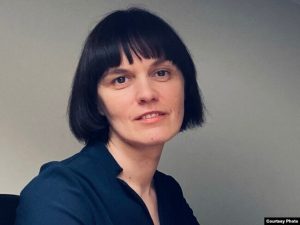 Tatsiana Chulitskaya is Senior researcher, Faculty of Political Science and Diplomacy, Vytautas Magnus University and academic director of the School of Young Managers in Public Administration (SYMPA), Belarus. Tatsiana has a profound experience in different Belarusian civil society related projects. Her research interests are public policy analysis, civil society in non-democratic regimes, reforms in the post-Soviet states, Belarusian studies, welfare state and social policy of the post-Soviet states.
Tatsiana Chulitskaya is Senior researcher, Faculty of Political Science and Diplomacy, Vytautas Magnus University and academic director of the School of Young Managers in Public Administration (SYMPA), Belarus. Tatsiana has a profound experience in different Belarusian civil society related projects. Her research interests are public policy analysis, civil society in non-democratic regimes, reforms in the post-Soviet states, Belarusian studies, welfare state and social policy of the post-Soviet states.
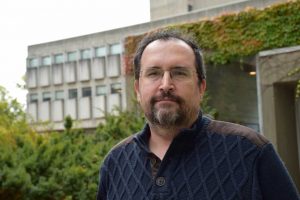 Evren Altinkas received postgraduate degrees from King’s College London in 2000 and from Dokuz Eylul University in 2003. He obtained his doctoral degree from Dokuz Eylul University in 2011 based on his dissertation comparing the development of the concept of intellectuals in Europe and in Ottoman State/Turkey. Since July 2018, Altinkas has been employed as a Visiting Assistant Professor in the Department of History, University of Guelph. His research areas are the History of the Middle East, Turkish History, Displaced Scholars and Their Problems, Intellectual History and the Transformation from Ottoman Empire to Modern Middle East and Turkey. He received the Chevening Scholarship for the academic year of 1999-2000, and is a MESA Global Academy Fellow for the academic year 2021-2022. Dr. Altinkas has several academic articles and book chapters published. Altinkas recently gave talks and seminars about the displaced scholars and the problems they face in the host countries, equity and diversity issues and has a forthcoming article on this problem.
Evren Altinkas received postgraduate degrees from King’s College London in 2000 and from Dokuz Eylul University in 2003. He obtained his doctoral degree from Dokuz Eylul University in 2011 based on his dissertation comparing the development of the concept of intellectuals in Europe and in Ottoman State/Turkey. Since July 2018, Altinkas has been employed as a Visiting Assistant Professor in the Department of History, University of Guelph. His research areas are the History of the Middle East, Turkish History, Displaced Scholars and Their Problems, Intellectual History and the Transformation from Ottoman Empire to Modern Middle East and Turkey. He received the Chevening Scholarship for the academic year of 1999-2000, and is a MESA Global Academy Fellow for the academic year 2021-2022. Dr. Altinkas has several academic articles and book chapters published. Altinkas recently gave talks and seminars about the displaced scholars and the problems they face in the host countries, equity and diversity issues and has a forthcoming article on this problem.
Emma Sitland
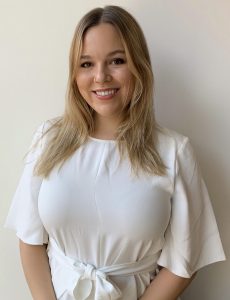 Emma Sitland is a third-year student in McGill’s J.D./B.C.L. program, with a background in International Development Studies. At the Faculty of Law, Emma is the Editor-in-Chief of the McGill Journal of Sustainable Development Law and President of Avocats sans frontières McGill, and volunteers with legal clinics on and off-campus. Passionate about human rights and social justice, Emma has gained various experiences in this field. She has worked with the Commission for Human Rights and Administrative Justice in Ghana, Equitas, and Human Rights Watch, and is currently a legal intern for Avocats sans frontières Canada.
Emma Sitland is a third-year student in McGill’s J.D./B.C.L. program, with a background in International Development Studies. At the Faculty of Law, Emma is the Editor-in-Chief of the McGill Journal of Sustainable Development Law and President of Avocats sans frontières McGill, and volunteers with legal clinics on and off-campus. Passionate about human rights and social justice, Emma has gained various experiences in this field. She has worked with the Commission for Human Rights and Administrative Justice in Ghana, Equitas, and Human Rights Watch, and is currently a legal intern for Avocats sans frontières Canada.
Janelle Deniset
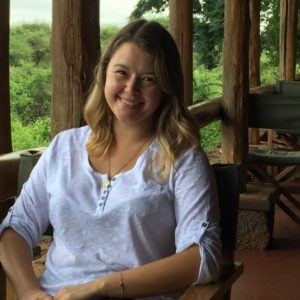
Janelle is a third-year student at the McGill Faculty of Law. She holds a Master of Global Affairs from the University of Toronto’s Munk School of Global Affairs along with a Bachelor of Arts (hon.) in Political Science from the University of Winnipeg.
Prior to attending law school, Janelle worked as a Policy Analyst for Global Affairs Canada in Inter-American Affairs. Previously, she worked in Nairobi, Kenya as a Special Projects Officer for the Aga Khan Foundation Canada as part of their international youth fellowship program. She also spent time in Geneva, Switzerland as a Junior Policy Officer at the Canadian Permanent Mission to the United Nations where she was part of a team that successfully supported the adoption of a resolution on the elimination of violence against women and girls, including Indigenous women and girls, at the 32nd session of the Human Rights Council.
Second Concurrent Session
Roundtable 2.1 – Latin America
Time: 11:30-12:30 pm PST / 2:30-3:30pm EST
Abstract: Within SAR’s Scholars in Prison project, there is notably a lack of “representation” in advocacy for Latin American academics or students, despite multiple confirmed cases by SAR of false imprisonment and arrest by state security forces, especially in Brazil, Venezuela, and Colombia. What notable advocacy work is taking place to address the recent decline in Latin America’s Academic Freedom Index? How can the international community support and amplify advocacy efforts in the region? Brazilian president Jair Bolsonaro has not only used his executive powers to undermine university autonomy, but also pursued legal action against critics within university campuses. This may offer an intersection to the discussion of the state of academic freedom in Latin American universities. Another cross-cutting issue that may be worthy to note in this roundtable is the legacy of populism and hybrid political regimes and its imprint on academia in the region.
Speakers:
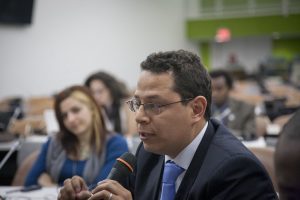 Salvador is director of the Human Rights of the Human Rights Research and Education Centre and part-time professor at the Section de Droit Civil, University of Ottawa.
Salvador is director of the Human Rights of the Human Rights Research and Education Centre and part-time professor at the Section de Droit Civil, University of Ottawa.
Hari Lavalle
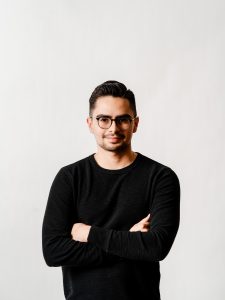
Hari is a recent graduate from the International Relations program at the University of British Columbia, and has a passion for sustainability and social justice. Outside of his studies he spent most of his working as a photographer and videographer to develop a storytelling toolkit. Developing an interest in both creative and analytical work that he is now able to passionately apply at Yulu Public Relations. Helping clients come up with creative assets for media campaigns and announcements as well as fostering relationships with journalists, and all the other elements of public relations.
Danilo Angulo-Molina
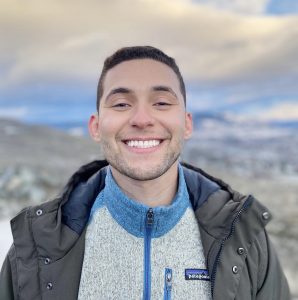
Danilo Angulo-Molina (he/him/his) is a fourth-year Honours Political Science and International Relations double-major student. As a researcher of the COVID-19, Academic Freedom and Human Rights Research Project in 2020/21, Danilo advanced the understanding of how COVID-19 affected the academic freedom of Latin American scholars; and as part of a seminar, he wrote book reviews on academic freedom that will be used in the future iteration of the largest international report on academic freedom: Free to Think.
Roundtable 2.2- Canada
Time: 11:30-12:30 pm PST / 2:30-3:30pm EST
Abstract: The focus of work on academic freedom, including Scholars at Risk, often exclusively center around countries with authoritarian governments or deteriorating human rights conditions. However, there is also a need to turn inward and critically examine the state of academic freedom within Canadian institutions. While Canadian universities do not face the same repression and attack as documented in other regions of the world, the issue of academic freedom remains a vaguely-defined and highly-contested subject amongst faculty and students, including the distinction between AF and freedom of expression, commercialization of university research, and access to protection under AF, etc. The goals are for roundtable participants to:
- Gain a better understanding of how academic freedom is protected (or not) in their respective universities, and whether such policies are adequate to meet the unique challenges Canadian students and faculty may face in the present
- Reflect on Canadian universities’ roles in safeguarding and promoting academic freedom in other parts of the world through the lens of critical solidarity
UBC students who conducted the comparative research report last year are encouraged to lead the discussion and offer expertise insight into their findings as starting points for roundtable discussions
Speakers:
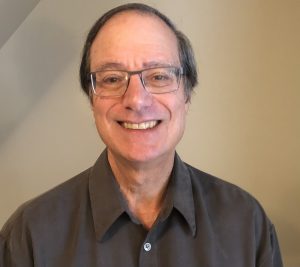
Dr. Paul Axelrod (he/him) is a Professor Emeritus at York University, with previous experience researching the history and evolution of academic freedom in Canada. He is the author or editor of 9 books, some 50 scholarly articles, 62 book reviews, and some 50 magazine, newspaper and internet articles. His scholarly work explores the history of schooling and higher education, policy development in post-secondary education, and student and youth experiences.
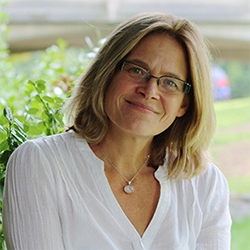
Dr. Alison Hearn (she/her) is an Associate Professor at Western University and is the chair of the Academic Freedom and Tenure Committee of the Canadian Association of University Teachers (CAUT). Her research focuses on the intersections of digital media, promotional culture, self-presentation, the credit economy, and emerging forms of work. She has published widely on these issues in such journals as Social Media+Society, Journal of Consumer Culture, and the International Journal of Communication, and in edited volumes including The Media and Social Theory, Blowing Up the Brand, and Commodity Activism.
Krystal Go
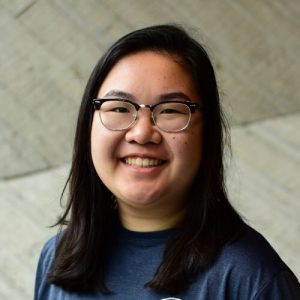
Krystal Go (she/they) is a third year university student majoring in Political Science. She was part of the Academic Freedom and Human Rights Research Engagementship 2021 which wrote a comparative analysis report on academic freedom policies across 23 Canadian university institutions. Her focus was on the separation of academic freedom and freedom of expression/speech. The report was the first analysis of its kind and can be found on the UBC HRC website.
Jaerin Kim
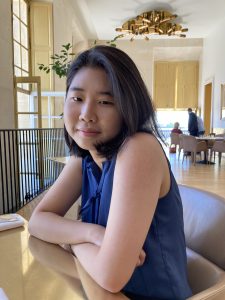
Jaerin Kim (she/her) is a third-year International Relations & Law and Society student studying in the UBC Sciences Po Dual Degree program. Her major interests include public policy, interculturalism, global governance, and social justice issues. Jaerin’s interest in public policy and social justice issues has led her to be involved with Academic Freedom and Human Rights Research Engagementship, where she researched the status quo of Canadian higher education’s policies related to academic freedom with fellow undergraduate researchers.
Serena Karevich
 Serena Karevich is an undergraduate student at Trent University studying International Development Studies with a minor in Political Studies. She is currently the social media liaison for Scholars At Risk Chapter at Trent University.
Serena Karevich is an undergraduate student at Trent University studying International Development Studies with a minor in Political Studies. She is currently the social media liaison for Scholars At Risk Chapter at Trent University.
Emilia Vera Romero
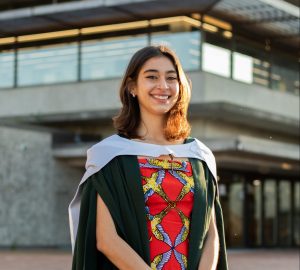
Emilia Vera Romero is a Chilean student doing her undergrad at Trent University. She is studying International Development with an Economics minor. Emilia is the creator, host and producer of the podcast Students for Academic Freedom, intending to make academia more equitable and accessible. Emilia believes in the development of social justice education as a tool for emancipation.
Third Concurrent Session
Skills workshop: Student Advocacy Through Government and Elected Officials
Time: 1:00-2:00 pm PST/ 4:00-5:00 pm EST
Abstract: When well-known organizations like Amnesty International or Human Rights Watch embark on a human rights advocacy campaign, their work not only captures the attention of a global audience due to their expansive reach, but more importantly they also gain the attention of state and national governments. In contrast, student activism – more specifically government lobbying – often goes unnoticed if not outright ignored by elected officials. As a result, many young activists resort to other methods where they feel their efforts will have a larger overall impact, such as social media viral campaigns, awareness outreach, and symposium events, etc. However, government lobbying remains an essential aspect of academic freedom advocacy at home and abroad. This session aims to equip student participants with a basic set of tools, skills, and best practices to conduct advocacy work through government officials. The workshop, though not a replacement for, is nevertheless in line with the intent of the original SAR Advocacy Days Event where SAR seminar students across the US travel to Washington DC every year to conduct advocacy with elected members of Congress and NGO leaders on behalf of wrongfully imprisoned scholars.
By the end of this workshop, participants will hopefully feel more comfortable and confident in this avenue of advocacy, including:
- Best practices to land a face to face or virtual meeting
- Effective steps for presenting the case
- Make a clear ask
- Effective follow-up and next steps
Speakers:
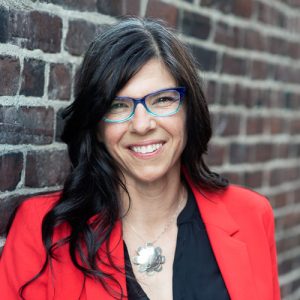 Andrea Reimer is an Adjunct Professor of Practice at UBC’s School of Public Policy and Global Affairs. She was the school’s first Policy Practitioner Fellow. Andrea has been a strong public voice in Vancouver and the metro region for almost two decades, with a focus on working with residents to build green, reconciled, engaged communities and making government easy for the public to access.
Andrea Reimer is an Adjunct Professor of Practice at UBC’s School of Public Policy and Global Affairs. She was the school’s first Policy Practitioner Fellow. Andrea has been a strong public voice in Vancouver and the metro region for almost two decades, with a focus on working with residents to build green, reconciled, engaged communities and making government easy for the public to access.
Andrea started her public work as a community organizer on community efforts to achieve greater social, environmental and economic justice. In 2002, she was elected to the Vancouver School Board, a first for the Green Party in Canada. In 2008, Andrea co-chaired Gregor Robertson’s successful campaign for Mayor, ran for Council herself, and went on to be elected to three terms on Vancouver City Council.
Faculty session – Running SAR Engagementships
Time: 1:00-2:00 pm PST/ 4:00-5:00 pm EST
Abstract: This session will bring together faculty members from across Canada who run different forms of student engagement in support of SAR and SAR Canada’s work. Panelists will share their experiences in running these opportunities including practical matters (i.e. institutional barriers and support for offering these opportunities for students) alongside pedagogical and ethical reflections related to including students in this work. Faculty from other universities not yet offering SAR opportunities for students but with an interest in doing so are invited to attend to learn from the experience of other Canadian Faculty members.
Speakers:
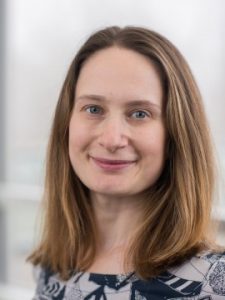 Dr. Jenny Peterson (she/her) is an Associate Professor of Teaching at the UBC Political Science department and a Faculty Advisor at the UBC Human Rights Collective. She is broadly interested in the politics of international aid with her past work analyzing process of liberal peacebuilding and critiques thereof. Finding much of this critical work homogenizing of a diverse range of processes she has recently began exploring conceptual and empirical deviations from the liberal model. Engaging with debates on pacifism, agonism, resistance, hybridity and political space she is now exploring diversity and innovation, both local and international, in peace/justice movements. She has conducted research and led student fieldtrips in Kosovo, Sri Lanka and Ghana. Her teaching interests include peace studies, international relations, humanitarian studies and human rights.
Dr. Jenny Peterson (she/her) is an Associate Professor of Teaching at the UBC Political Science department and a Faculty Advisor at the UBC Human Rights Collective. She is broadly interested in the politics of international aid with her past work analyzing process of liberal peacebuilding and critiques thereof. Finding much of this critical work homogenizing of a diverse range of processes she has recently began exploring conceptual and empirical deviations from the liberal model. Engaging with debates on pacifism, agonism, resistance, hybridity and political space she is now exploring diversity and innovation, both local and international, in peace/justice movements. She has conducted research and led student fieldtrips in Kosovo, Sri Lanka and Ghana. Her teaching interests include peace studies, international relations, humanitarian studies and human rights.
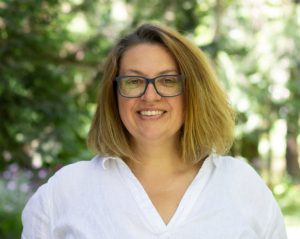 Tamara Baldwin (she/her) is the Director of the Office of Regional and International Community Engagement (ORICE) at UBC, which houses the UBC Human Rights Collective. She is also the Acting Assistant Director, School of Public Policy and Global Affairs. Tamara has worked in higher education for two decades with a background in community/international development, student engagement, curriculum design, assessment and facilitation. Tamara is currently pursuing a Doctorate in Educational Leadership and Policy at UBC, and holds a M.Sc. from the University of Birmingham in Poverty Reduction and Development Management. Tamara’s community-based work coordinates cross-sectoral research and internship projects with numerous NGO’s, social enterprises, and various levels of government for experiential education courses and programs at UBC.
Tamara Baldwin (she/her) is the Director of the Office of Regional and International Community Engagement (ORICE) at UBC, which houses the UBC Human Rights Collective. She is also the Acting Assistant Director, School of Public Policy and Global Affairs. Tamara has worked in higher education for two decades with a background in community/international development, student engagement, curriculum design, assessment and facilitation. Tamara is currently pursuing a Doctorate in Educational Leadership and Policy at UBC, and holds a M.Sc. from the University of Birmingham in Poverty Reduction and Development Management. Tamara’s community-based work coordinates cross-sectoral research and internship projects with numerous NGO’s, social enterprises, and various levels of government for experiential education courses and programs at UBC.
 Professor Adam Braver (he/him) is the Library Program Director and professor in the Department of English Literature and Creative Writing at Roger Williams University. Braver is the author of seven novels, including the acclaimed Misfit, and his work has been published in a number of literary journals. He also edits the Broken Silence Series for University of New Orleans Press, which tells first-and accounts of political dissidents—most recently that of Jewher Ilham in the book Because I Have To. With Scholars at Risk, Braver serves as the Coordinator of the Student Advocacy Seminar Program, working to provide university and college students with the opportunity to develop human rights research and advocacy skills through direct engagement on behalf of threatened members of the global higher education community.
Professor Adam Braver (he/him) is the Library Program Director and professor in the Department of English Literature and Creative Writing at Roger Williams University. Braver is the author of seven novels, including the acclaimed Misfit, and his work has been published in a number of literary journals. He also edits the Broken Silence Series for University of New Orleans Press, which tells first-and accounts of political dissidents—most recently that of Jewher Ilham in the book Because I Have To. With Scholars at Risk, Braver serves as the Coordinator of the Student Advocacy Seminar Program, working to provide university and college students with the opportunity to develop human rights research and advocacy skills through direct engagement on behalf of threatened members of the global higher education community.
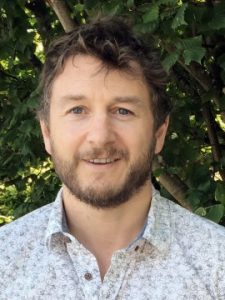
Dr. Neil Armitage (he/him) is a Lecturer in Sociology at the University of British Columbia (UBC). Prior to this he worked as a Learning Strategist at the UBC Centre for Student Involvement and Careers. Through holding both staff (co-curricular) and faculty (curricular) roles, he now partners with various units on campus to integrate and embed practical and experiential learning opportunities within his courses – such as SAR advocacy work. Together with staff and faculty colleagues in the Faculty of Arts, he is currently working on a project to further enhance experiential education in large first year Arts courses.
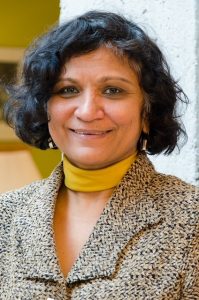
Professor Nandini Ramanujam (she/her) is the Co-Director and Director of Programs of the Centre for Human Rights and Legal Pluralism at McGill University’s Faculty of Law. She also directs the International Human Rights Internship Program as well as Independent Human Rights Internships Program. She is the McGill representative for the Scholars at Risk Network and is a member of the Steering Committee of the Scholars at Risk Network, Canada section.
Closing Keynote Panel
Sustaining Solidarity: Hope and Communities of Care
Time: 2:00-3:30 pm PST/ 5:00-6:30pm EST
Abstract: “It feels like everything that can be done, has been done”. Dr. Ilham Tohti was sentenced to life in prison in China since 2014; similarly, Dr. G.N. Saibaba has been serving a life sentence inside Nagpur Central Jail, India since 2017; Dr. Ahmadreza Djalali was arrested in 2016, and has been sentenced to death in Iran. The multi-year campaign and coordinated advocacy operations of global NGO networks seemingly have not made significant progress in securing the release of these wrongfully-imprisoned scholars, despite the high profile international attention they garnered. SAR seminar students who worked / are working on these long-standing cases have expressed both frustration and feelings of isolation in their advocacy efforts. This is true for other kinds of social justice movements beyond protecting and advancing academic freedom. Indeed, the sense of helplessness speaks to the significant expense of emotional labour that is required to operate in the human rights space, as well as the prevalence of burnout among young activists. Community members are joining SAR Programs from different positionalities, lived experiences, and skill sets. While some will experience or show little signs of impact on their health as they engage with the SAR Program, others’ mental and physical health will be more severely impacted. Using the cases of Drs. Tohti, Djalali, and Saibaba as a starting point for discussion, the closing keynote panel will address the frustration, discouragement, and burnout that students may feel throughout the course of their human rights work. How do we, as a group of academic freedom advocates, create communities of care for each other, and foster a supportive environment that prioritizes people’s wellbeing. Lastly, the panel will also be invited to share their personal experience of how to sustain hope and critical solidarity in their human rights work, where progress is slow and “victories” are few and far between.
The primary objective of the closing keynote panel is to acknowledge and address challenges that students may face as they engage with SAR’s umbrella of work in academic freedom protection, advocacy, and education, while at the same time disembark from this Event with a newfound sense of community and solidarity even beyond the confines of Scholars at Risk.
Speakers:
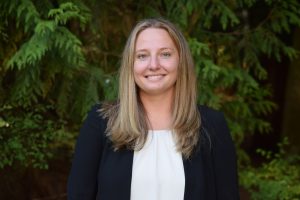
Shanel Feller (she/her) is a Graduate Academic Assistant for Scholars at Risk and the Human Rights Collective. She is a second-year student in the Master of Public Policy and Global Affairs program specializing in Climate Change and Human Security. She aims to incorporate an intersectional and decolonial lens to her work and advocacy.
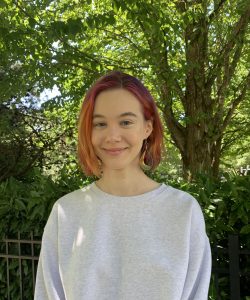 Nastya Mozolevych (she/her) is a Program Assistant for the Human Rights Collective (HRC). She is a Ukrainian student double majoring in Sociology and International Relations. A major part of her work within the HRC has been to incorporate community care, including a trauma and healing informed lens, into various projects. She developed a module on community care for faculty interested in including Scholars at Risk projects into their courses.
Nastya Mozolevych (she/her) is a Program Assistant for the Human Rights Collective (HRC). She is a Ukrainian student double majoring in Sociology and International Relations. A major part of her work within the HRC has been to incorporate community care, including a trauma and healing informed lens, into various projects. She developed a module on community care for faculty interested in including Scholars at Risk projects into their courses.